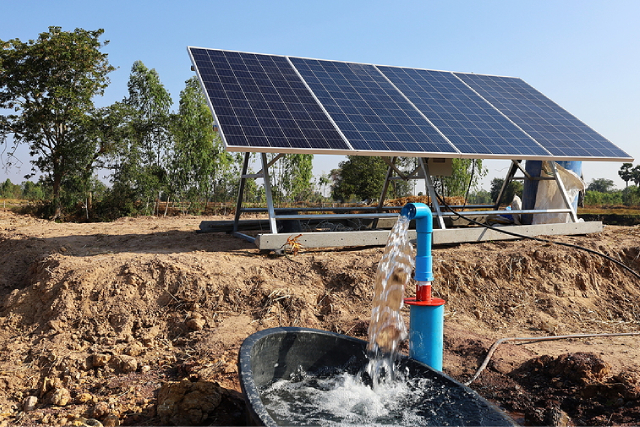The Advantages And Disadvantages Of Using Solar Water Pumps

Solar is becoming increasingly prominent as a clean and efficient energy source for many households and industries worldwide. For instance, air compressors in Singapore powered by solar energy are gradually entering the market and providing businesses with an eco-friendly option for storing pressurised air.
Aside from air compressors, other industrial technologies like vacuum pumps and dosing pumps are now gradually embracing the application of solar energy. In particular, solar-powered water pumps have been creating quite a buzz recently, especially in the agriculture and energy sectors.
However, while solar pumps seem too promising for many industries and sectors now, there are some pitfalls to this technology that industries should note. Here are the significant advantages and disadvantages of solar water pumps to understand more about them.
Benefits of Solar Water Pumps
- Less Labour and Maintenance Costs
Solar panels, in general, are more economical and efficient now than before. This increased affordability and efficiency have permitted a new generation of solar-powered technologies across different industries. Solar water pumps are among the most efficient solar-powered systems that you can affordably maintain.
Compared to traditional pumping systems, solar water pumps require less maintenance and have lower operating costs. When you run a solar pump, all that is needed is to keep the different components of the system clean and replace some parts like the solar VFD inverter after about 2 to 6 years. Because solar pumps run on sunlight, you can also save a lot of money from having to buy diesel regularly.
- High Versatility and Applicability
Another reason why solar supply systems are widely preferred nowadays is their high versatility and flexibility across various applications. You can already easily supply water for your irrigation, livestock, and other residential and industrial needs by using a solar pump. Because they use energy from sunlight instead of fossil fuels, solar pumps make water easily accessible, even without fuel or electricity.
- Environmentally Friendly
Their eco-friendliness is one of the most highlighted benefits of solar water pumps. Before solar pumps, industries primarily used fossil fuel pumps that generated a lot of pollution. In comparison to this, solar pumps do not create harmful pollutants that keep the soil and air from being clean.
These solar pump systems are essentially sustainable and use renewable energy. Because they replace fossil fuels, they contribute to reducing carbon emissions and pollution while simultaneously providing a steady supply of energy to power the pumps.
Pitfalls of Solar Water Pumps
- High Initial Costs
Although maintaining and operating solar water pumps are pretty cheap, the initial costs of these systems are relatively higher compared to conventional pumps. The upfront costs of buying solar water pumps are high mainly because these systems comprise several components, and their initial installation is usually expensive. Nonetheless, in the long run, solar pumps are still your cheaper option for the reasons already mentioned earlier.
- Possibility of Over-Exploitation
The minimal costs of maintaining and operating solar pumps enable the indiscriminate water pumping through their use. However, this unfettered freedom can lead to over-exploitation in the long term. Because access to solar pumps is unregulated, people are no longer limited to the amount of water they can use, which will inevitably lead to the excessive exploitation of the already vulnerable groundwater resources.
- Dependent Primarily on Weather
Solar water pumps can operate in minimal sunlight conditions. However, since they run on solar energy, solar pumps will not work if there is no sunlight for several days. This makes these systems heavily dependent on weather conditions. Nonetheless, with a bit of planning regarding where your solar panels will be installed and how the water will be stored, you can eliminate this disadvantage of using solar pumps.
Conclusion
Solar water pumps are a flexible pumping solution that is quite affordable to maintain and does not contribute to pollution and the depletion of the earth’s natural resources, making it an excellent choice to achieve sustainability in pumping technology. However, as with any other technology, solar pumps are not spared from issues and disadvantages. By knowing both the pros and cons of using a solar water pump, you can determine more easily and wisely whether or not this technology is the right solution for your pumping needs!

